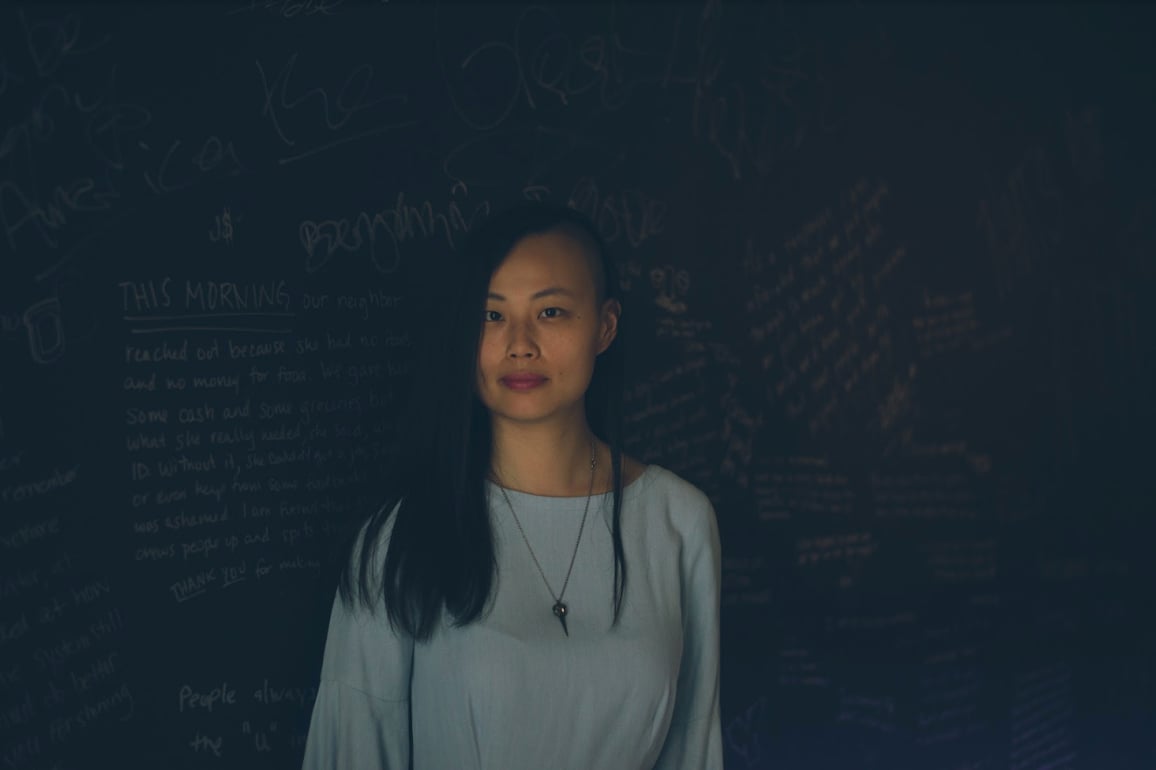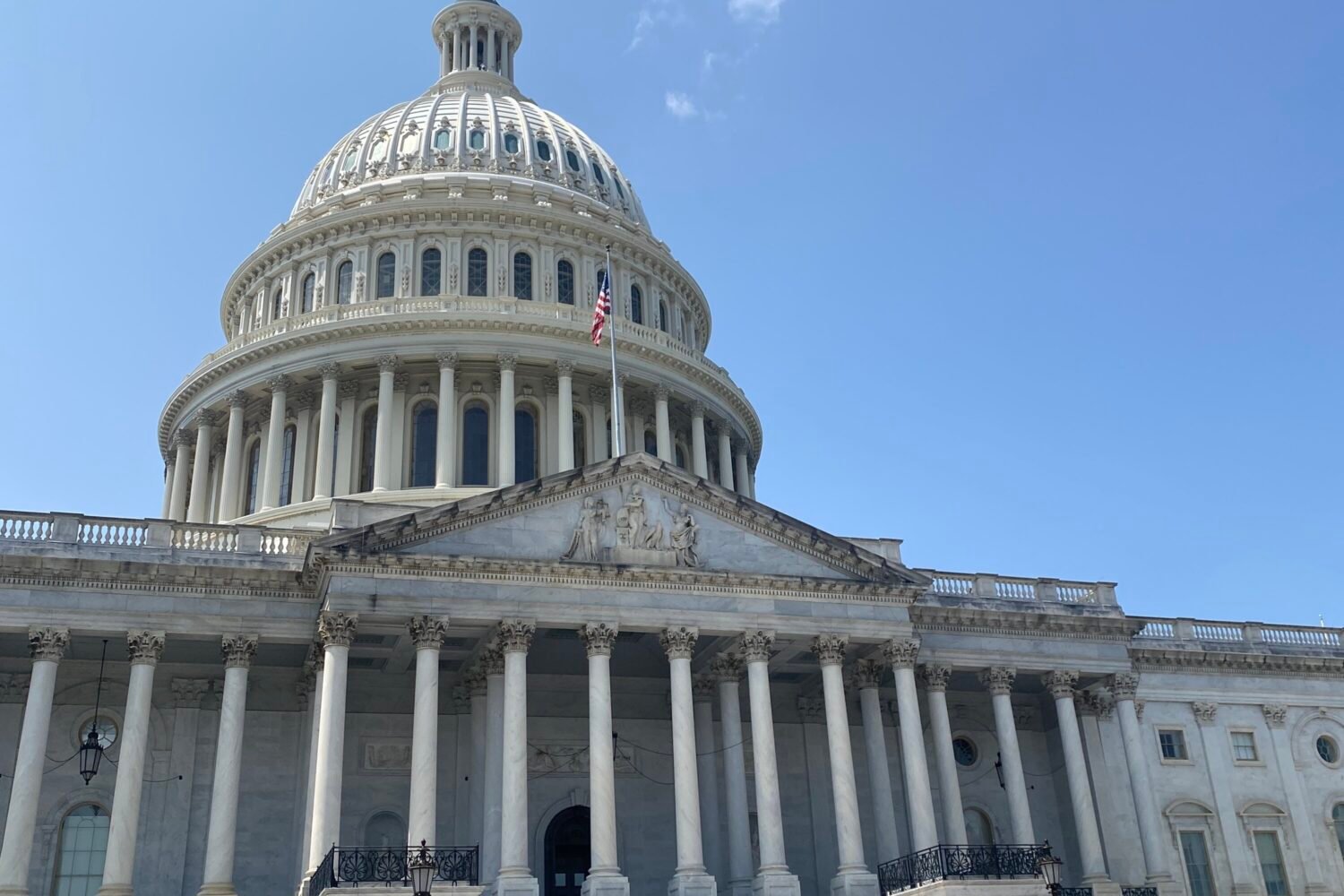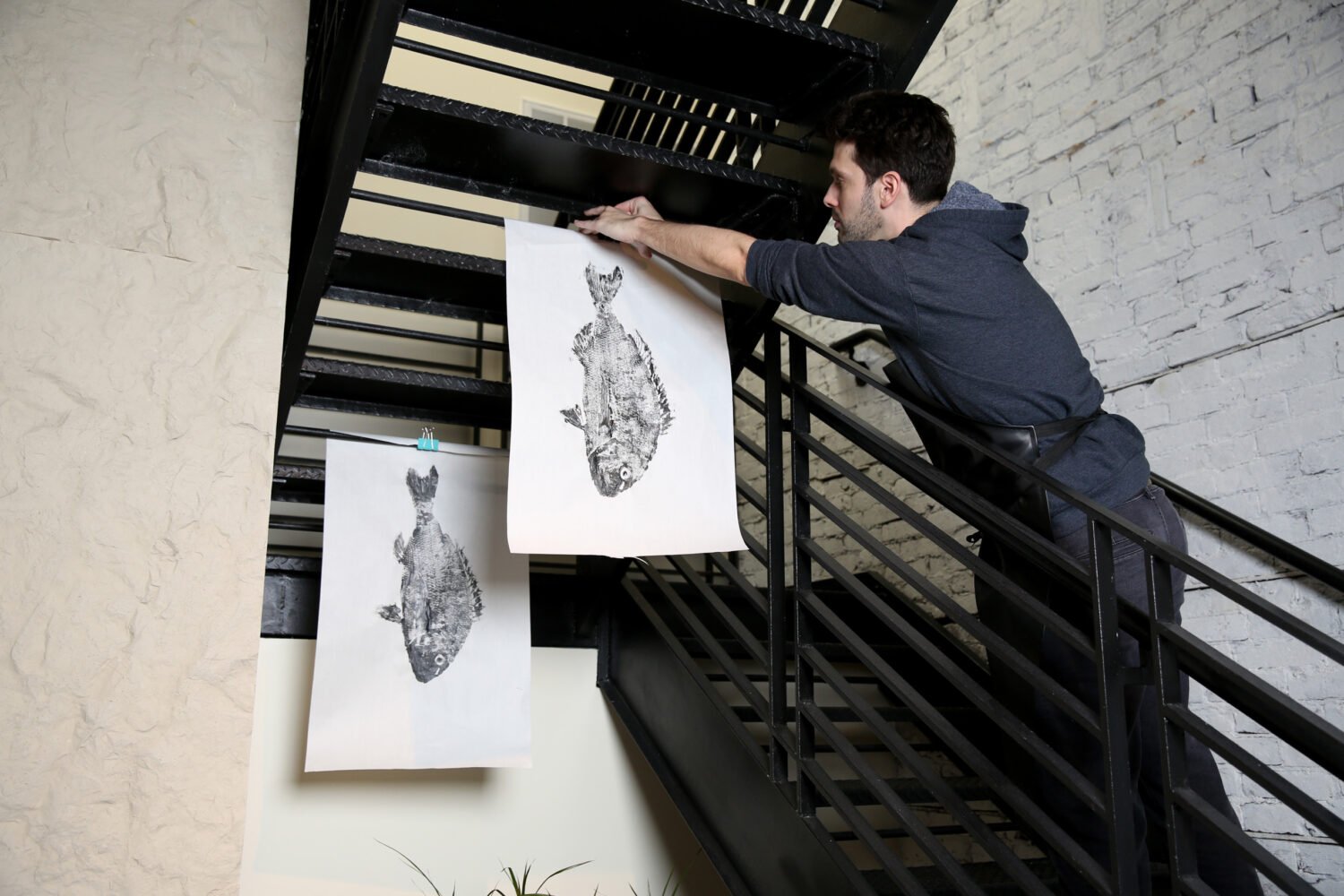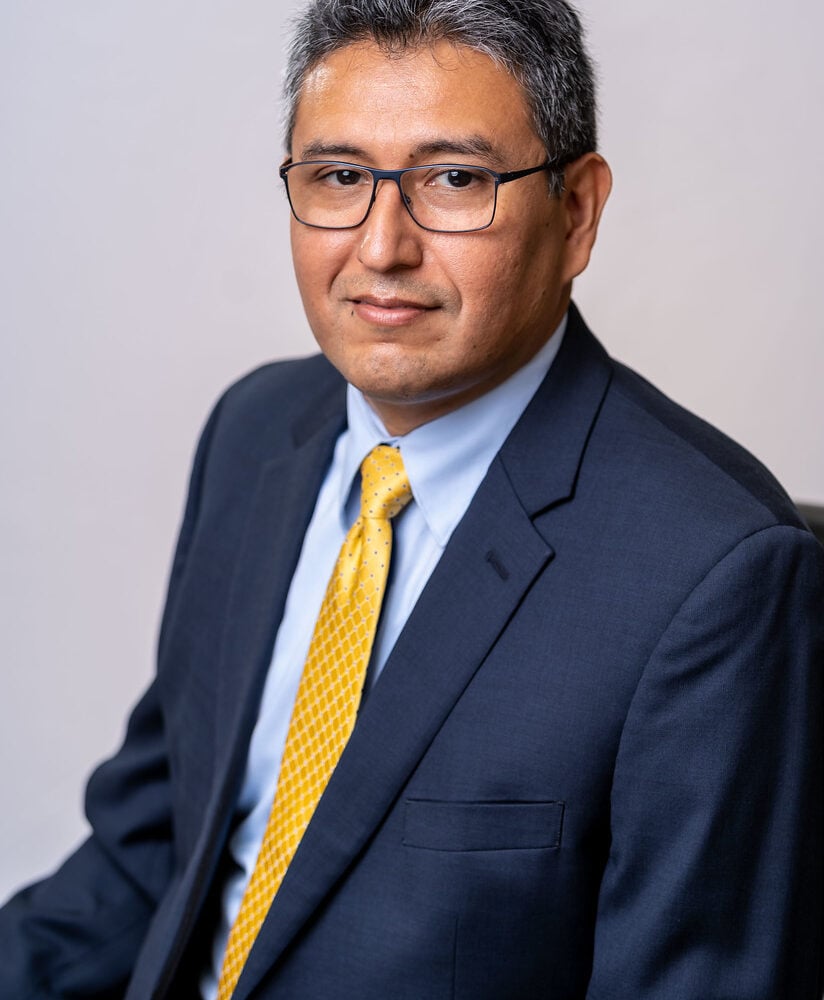Ken Cuccinelli probably did not have the artist Xena Ni in mind this summer when he announced a severe measure meant to curb immigration. Ni, a UX designer who emigrated from China as an infant with her parents, came to Washington after Stanford to deploy tech for the public good—creating public benefit portals for the Department of Veterans Affairs, Medicaid, and Medicare. (She was also part of a team called in to rescue Healthcare.gov during its introductory debacle.)
Ni was hardly an immigration activist—she scarcely knew her own family’s immigration history, a process that once struck her as so banal that she barely remembers her naturalization ceremony as a teenager.
Then Ni learned about the former Virginia governor turned Trump immigration official’s proposed immigration measure: Known as the public charge rule, it would deny green cards to people if they make use of or even qualify for public services such as food stamps, housing vouchers, or Medicaid.
The rule unlocked a flood of memories, as well as mysteries: Why had her grandparents abruptly left the United States? How exactly did her parents manage to flee China? And what were her own obligations as a beneficiary of good fortune?
An artist trained in various media, Ni decided to explore the questions in an exhibition. Her interactive show, The Lottery, debuts at the arts collective Hole in the Sky this weekend for one night only.
In an interview edited for length and clarity, Ni described conceiving the show, and how it led her to probe the junction of federal policy and family history.
Washingtonian: Why did you call it “The Lottery”?
Ni: In many ways, immigration is a lottery—the way that our policies have been constructed, and the very nature of how arbitrary it is where we are born, and who we are born to, can really determine our citizenship and our life trajectories. The show itself is also a kind of lottery.
In what way?
There’s going to be a surprise. If there’s an artful way to mention that separation is a theme, but not tip my hand—I imagine there might be some sadness, some anger, some shock, the feeling of separation. And it’s this feeling of, What? This isn’t fair… But I feel like it is really representative of the separation I feel as a result of not being able to easily travel back and forth, or be with my family in China for extended periods of time.
That’s the heart of the show—what you saw happen to your family, right?
The story is how my family came to be in the United States. First my parents, then me, and then my grandparents. And then how not all of us could stay in the United States for an extended period of time. And in particular, because of Medicaid eligibility rules—like to an outsider, a really subtle policy shift that actually made my grandparents very uncomfortable staying in the States any longer, and definitely contributed to their decision to go back to China.
Shortly after going back to China, my grandfather got cancer for a third time and passed away.
Wow.
Yeah. It’s sad. It’s going to be in the show. I’m doing my best to honor the story. It’s painful, but it happened. And I think my goal is to honor his contributions, his time here, and be able to tell his story and hope this doesn’t happen to many other families.
So [the exhibit’s] two rooms tell that story. And my hope is that when people leave the two rooms, there is going to be a big space where they will be reunited with each other, and at first have some verbal sharing—what was your side like? What did you learn?—which is also part of my own experience, being far from family and hearing a lot of stuff secondhand, thirdhand, in the way that stories get translated, because of distance.
And part of your goal is to encourage the audience to get involved in these issues.
We have some speakers from Asian Americans Advancing Justice, and some organizers from the Asian Pacific American Labor Alliance. Once people leave the two rooms, they’re going to walk through a corridor and they’re all together going to learn about an upcoming rule change called public charge.
The rule written by Ken Cuccinelli.
It basically is a new, racially motivated wealth test for immigrants coming into the United States. And the last section of the installation is going to be about this is policy: It’s temporarily blocked by the courts, here’s how many people could be affected, here are six things you can do to stand with immigrants in DC to support them as this is all happening.
I wondered if we could go back to what happened with your family for a second. And more specifically what happened to your grandparents’ Medicaid eligibility.
This thing happened back in 2007, when my family moved from Washington to Ohio, and the Medicaid rules changed between the two states. In Ohio, you cannot receive Medicaid unless you’ve been a permanent resident until a certain amount of time. Basically, my grandparents weren’t the right kind of legal immigrants to receive legal aid. I was youngish at the time—I knew they decided to go back, knew it had something to do with Medicaid. It certainly led to a lot of difficult conversations. Eventually my grandparents decided they didn’t want to risk getting really, really sick and bankrupting my parents, so they decided to go back to China.
And so reading about this new public charge legislation, it just brought back all these feelings of someone arbitrarily deciding who can receive benefits—who gets punished, essentially, for getting benefits. I imagine hundreds of thousands of families will be affected by this, because that’s the number of people applying for green cards who have factors about them—age, education, income—that would put them in use of public benefits. Those families are probably going to have really hard conversations: Can grandma still come? Should we disenroll from this? Should we disenroll her from that?
And I could easily see this happening to my family, if we were in a similar situation. It’s over ten years later, and we’re in a different income place. But it still reminds me of the difficult decision we made many years ago that had to do with eligibility and healthcare, and immigration policy.
You mentioned being young and not fully understanding what was going on at the time. Have you learned anything new about your family as you put the show together?
So I learned two things, talking to my parents more deeply about how we came over [from China]… I always expected, when I asked my dad what made him immigrate in the first place, to hear something about economic opportunity. Or worries about the Communist Party.
And then my dad told me a story about how his dad, my grandfather, was one of the earliest people in the village to buy a radio, back when it was still kind of suspicious to have a radio, because it meant that you could tune into things that maybe you weren’t supposed to tune into. My grandfather went and got one anyway, and my dad would listen to it late at night. And he would listen to Voice of America. He recounted to me this experience—pretty regularly at night, he would be quietly listening to his radio, and a voice would come on, and it would just say, “Jazz.” And it would play music that he had never heard before in his life. And he just found it so intriguing, and inspiring.
That was the spark that led him to want to study English, to want to learn more about American, to want to be in a place where people spoke English a lot. He just really had a deep love for the English language and American culture.
What was the second story?
I knew that [my dad] had gotten a green card. I just expected that he was sponsored through an employer. So I asked him about that. And he said, Oh, funny story actually—my dad had managed to immigrate to the US in this very small window after the Tiananmen massacre. Literally the day after the massacre, and then six to 12 months later, if you were a Chinese student and you came and entered the States in that window, you were given an easier path to get a green card….My dad was not one of those activists, but just happened to come to the States at the exact right time….I found out about this long after I decided to name the show The Lottery, but it really gave me chills—that my dad had won this very specific immigration lottery, and it gave my family an easier path.
Did you think much of your connection to immigration policy before Trump’s election? And how has it changed after?
I remember being 4 or 5, and a lot of my parents’ social circle were other grad students or recent immigrants, and the names of some of the forms being talked about—J1, J2, H1, H1B. So I’ve always been ambiently familiar with the immigration infrastructure, even though I didn’t understand the exact processes.
There have always been inhumane things to be very mad about, so that hasn’t changed. The volume at which they’re happening, the aggressive moves to appoint hardliners, the going on the offensive to create harm towards innocent people, that all feels like it’s been accelerating. …I feel constantly reminded that people think of me as an immigrant. I would say, probably five out of six ride share or cab rides I take, that is the immediate interrogation: Where are you from? Where were you from before that? Where were your parents from? It is irritating; it’s angering.
At the same time, like, it’s a big part of who I am. I’m extremely proud of all the sacrifices my parents and grandparents made. I wouldn’t exchange my experience for anyone else’s experience. It kind of feels like the question you asked me—did you recently start thinking about this fundamental part of who you are? No, it’s just who I am. It just feels a lot more targeted.
















